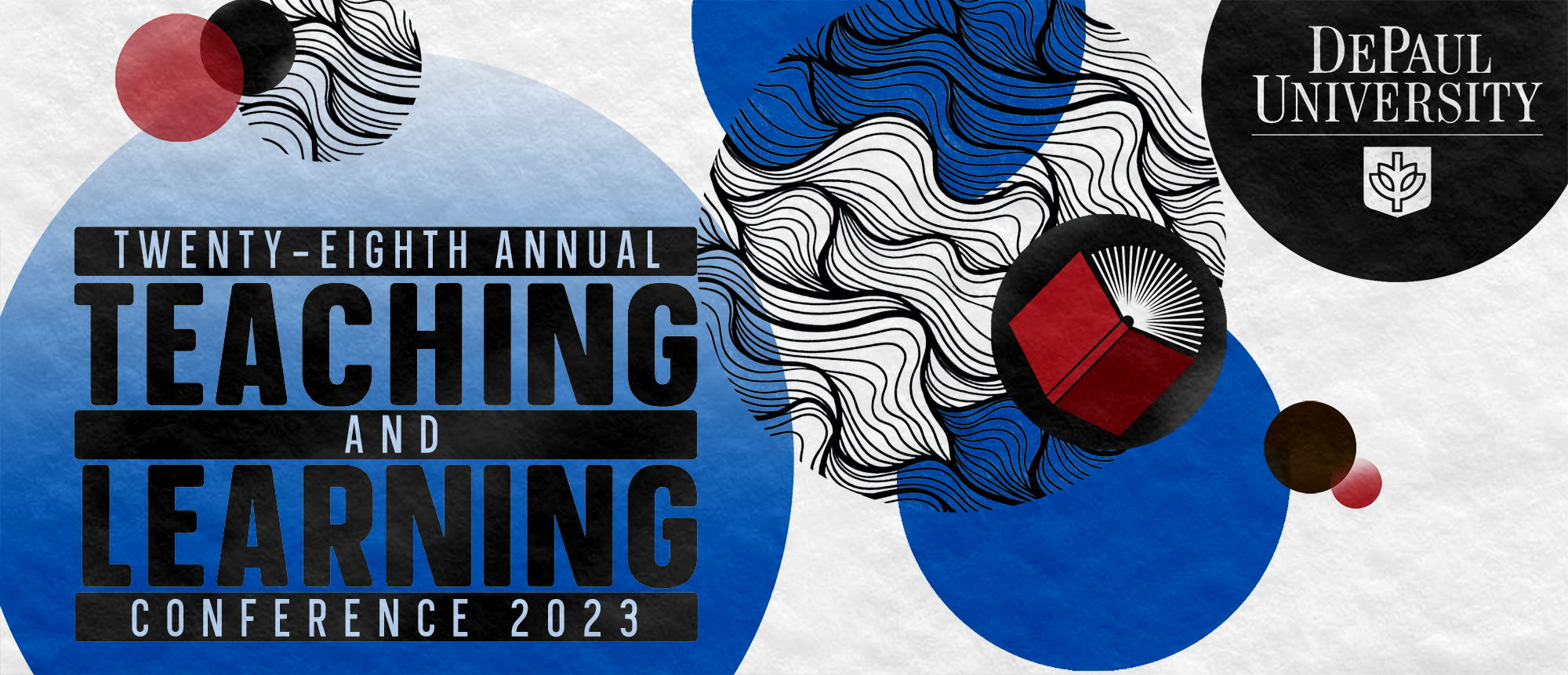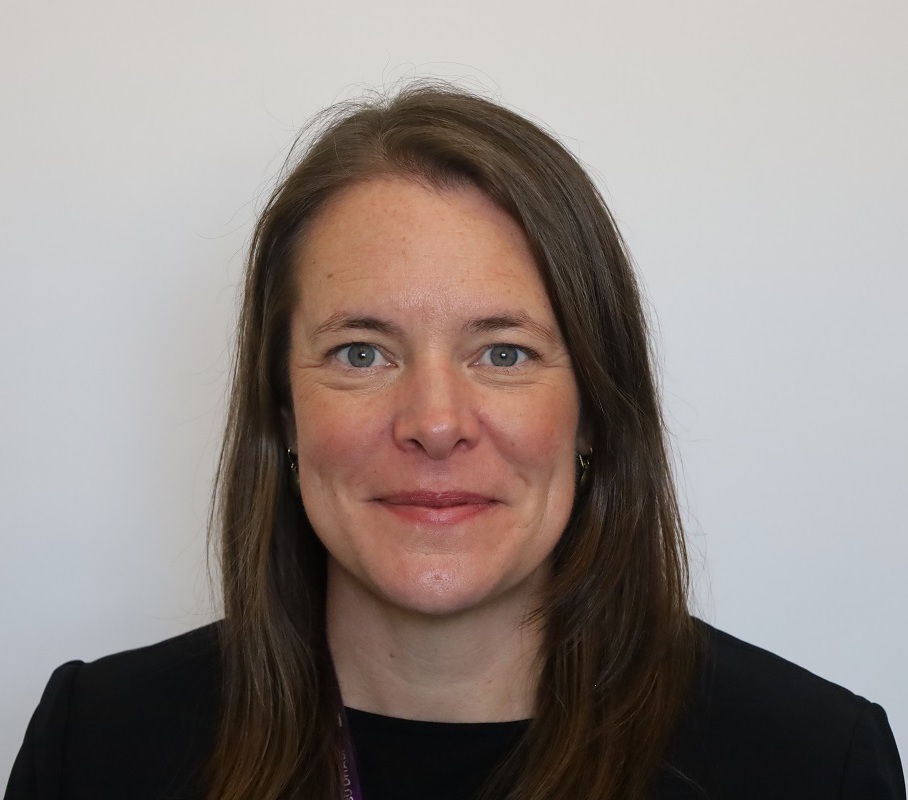
Friday, May 5th, 2023
Each year, the conference brings together roughly 300 faculty, staff, and other members of the DePaul community to share knowledge, promote effective teaching practices, and improve student learning experiences across the University. The 28th Annual Teaching and Learning Conference was held online.
The conference was sponsored by DePaul’s Center for Teaching and Learning. Key contributors to the planning of the conference included: the University-Center for Writing-based Learning (UCWbL), and Faculty Council's Committee on Learning and Teaching (COLT).
Keynote | 9:30am - 10:30am
The Future of Learning: How Will Artificial Intelligence Impact Teaching?
facilitated by Dr. Nancy Gleason
Watch Recording (Requires Authentication)
Concurrent Offerings | 10:45am - 11:30am
From Mindfulness to Resilience: I Know I'm Anxious, Now What? facilitated by Roxanne Farwick Owens & John P. Owens
How Creative Self Assessments Empower and Transform the Student facilitated by Carolyn Hoerdemann
Creative Interactive Technology-based Case Studies facilitated by Michelle Neuman
Global Citizenship Education and Decoloniality of Knowledge: GLE Between DePaul (USA) and Unichristus (Brazil) facilitated by Maria Prikhodko
Reconceptualizing the Reader Response Assignment in an Era of A.I. facilitated by Mark Sujak & Kim Kotty
Concurrent Offerings | 1:00pm - 1:45pm
Walking the Talk: Big and Small Practices for Building an Inclusive Classroom facilitated by Kirsten D'Aurelio
View Session Materials
Teaching Skills and Techniques Online: How Counselor Education Programs Ensure Continued Rigor and Excellence in a Remote Learning Environment facilitated by Kimberly Molnar, Darrick Tovar-Murray & Carlos Medina
View Session Materials
AI-Powered Pedagogy: Exploring Best Practices for Integrating AI in Teaching and Research facilitated by James Moore
View Session Materials
Integrating Sustainability into Your Course(s) facilitated by Barbara Willard & Mark Potosnak
Concurrent Offerings | 2:00pm - 2:45pm
Creating Welcoming and Inclusive Educational Spaces facilitated by Olya Glantsman
Executive Function and Resilience: Communication Fundamentals for College Success facilitated by Jay Baglia, Kendra Knight, Elissa Foster, Kristen Pengelly, Kate Cooper & Stephanie Grau
Games in the Classroom: Where do I start? facilitated by Jes Klass, Silvi MaCauley, Crane Benson, & Ope Animashaun
The Cyborg Muse: The Potential of AI Tools to Enhance and Accelerate Creativity facilitated by Scott Roberts, Andres Fiz, and Max Hammer
About the Keynote and Keynote Speaker

Nancy W. Gleason, PhD is the Director of the Hilary Ballon Center for Teaching and Learning and an Associate Professor of Practice in Political Science at New York University Abu Dhabi. Her research focuses on the Fourth Industrial Revolution’s impact on higher education, and the future of work. She considers the societal impacts of education, employment disruption, continuous reskilling, and the role of industry in supporting upskilling of adults. She is the editor of Higher Education in the Era of the Fourth Industrial Revolution (Springer, 2018). She is the co-editor, Diversity and Inclusion in Global Higher Education: Lessons from Across Asia (Palgrave March 2020). Dr. Gleason holds a PhD from the Fletcher School of Law and Diplomacy, Tufts University; MSc from London School of Economics; and a BA from George Washington University.
@NWGleason
The Future of Learning: How Will Artificial Intelligence Impact Teaching?
ChatGPT-4 and other powerful generative AI tools are here! This is changing the nature of expertise in the academy and in the workplace. The future of employability is about the ability to learn, and pursue active learning strategies. The disruptions of the climate crisis, ongoing COVID-19 pandemic, and technology require a new kind of resilience. How we teach plays a key role in responding to increased demand for adaptability, creativity, and problem-solving capabilities in our graduates. We can utilize engaging pedagogy at scale by thoughtfully integrating ChatGPT, and other AI, to help students develop these new skills, but first we must learn how to engineer useful prompts ourselves. This session addressed how we assess students’ learning processes in the context of generative AI tools, and avoid looking at only completed outcomes. We explored activities, assessments, and rubrics for the new reality of how we produce ideas and assess learning.